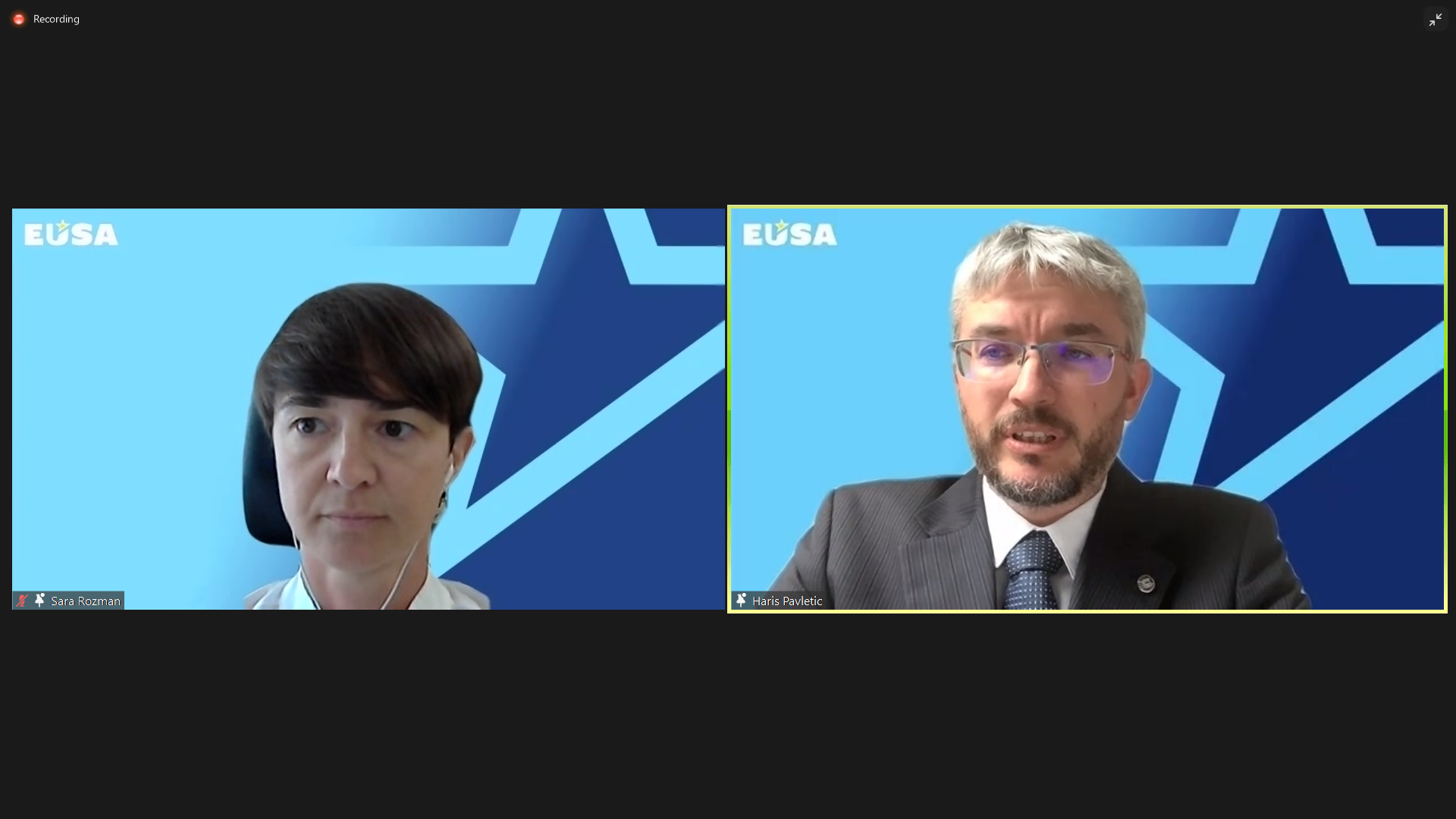EUSA taking strides in gender equality promotion

The European University Sports Association hosted an insightful webinar on gender equality on Thursday, July 1, continuing the association’s work in striving towards equal representation.
The webinar saw 50 people from 22 different countries register for the online event, which looked to address gender-unbalanced representation in decision-making positions in sports organisations and discuss the challenges women encounter when running for top positions.
Following an introduction by EUSA Education and Development Manager Ms Sara Rozman, EUSA Vice-President Mr Haris Pavletic gave a welcome address, indicating the importance of gender equality and the measures EUSA is taking to achieve this at various levels.
The first of two keynote speeches was delivered by Ms Milica Antic Gaber, a Professor in the Department of Sociology at the University of Ljubljana, who discussed the topic of gender quotas in relation to achieving gender equality in sport.
The second keynote address was delivered by Ms Ally Forbes, a Senior Lecturer from the Department of Sport at the University of Wolverhampton, who shared a case study example of achieving gender equality in the workplace.
An engaging question and answer session followed, allowing meeting attendees to further probe the topic and receive astute answers from the expert speakers.
The second part of the webinar involved a panel discussion addressing gender imbalance in sports organisations. Moderated by EUSA Executive Committee member and Equal Opportunities Chair Mr Bruno Barracosa, speakers on the panel included EUSA Gender Equality Committee member and Associate Dean of the University of Wolverhampton Ms Kay Biscomb; Women and Sport Committee member at Hungarian Olympic Committee Ms Anett Fodor; EUSA Executive Committee member and Czech University Sports Association President Ms Ivana Ertlova and Senior Adviser of the Norwegian Olympic and Paralympic Committee Mr Havard Ovregard.
Measures and realistic objectives on advancing gender equality in sport leadership was discussed, with webinar attendees once again given the opportunity to engage in a question-and-answer session thereafter before the conclusion of the online event.
The webinar again depicted EUSA’s commitment to improving equal gender representation, as signalled by its recent change in statutes and internal documents which aims to increase the minimum gender representation quota within the EUSA Executive Committee following this year’s General Assembly.
EUSA through its Institute is also involved in a number of Erasmus+-funded projects including Gender Equality Tooklit (GETZ), Rainbow Youth for Sporting Equality (RYSE), Inclusion in Sport (iSport), Innovating Football Leadership through Practice and Policy (iFlipp), PROmoting GendeR Equality in Sports (PROGRES) and Work for a Cause, Serve for Sport (W4C-S4S) which look to promote equal opportunities in sport at various levels across Europe.
More information about these projects can be found at eusa.eu/projects/equal-opportunities.
